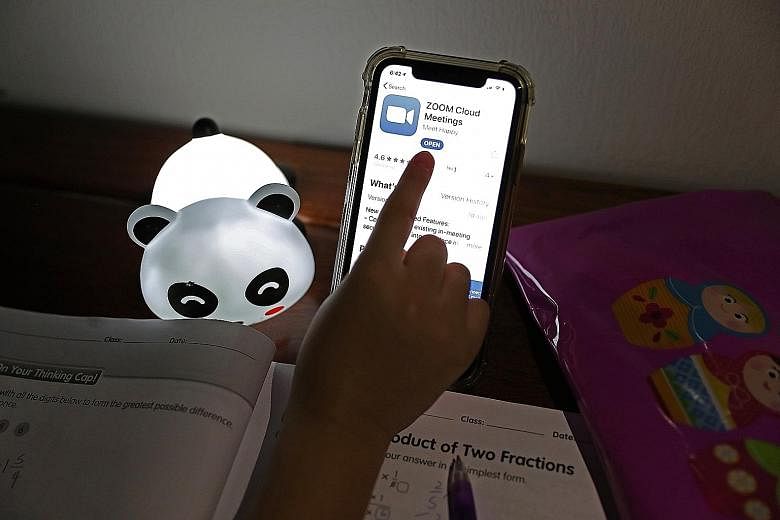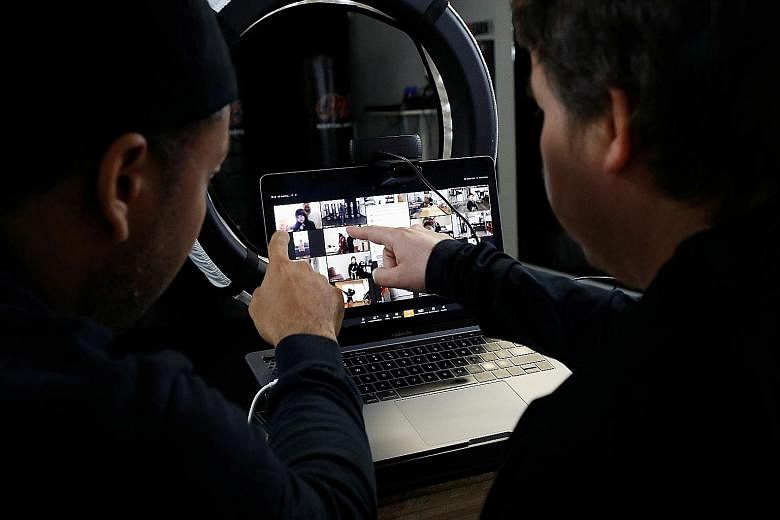All teachers will stop using video conferencing platform Zoom for their home-based teaching, after hackers hijacked the streaming of a lesson to show obscene pictures to some students.
The move is a precautionary measure until security issues have been ironed out, the Ministry of Education (MOE) said last night.
It is investigating the Wednesday incident involving students of a school in the east of Singapore, and will make a police report if necessary, said its divisional director for the educational technology division, Mr Aaron Loh. He also said home-based learning will continue but teachers will use alternative means to conduct their lessons.
Meanwhile, "we have reiterated and spelt out to all our teachers the security measures they must adhere to when using such video conferencing platforms. This includes requiring secure log-ins and not sharing the meeting link beyond the students in the class", he said.
He added that the ministry is working with Zoom to enhance its security and make security measures clear and easy to follow.
The hacking happened during a geography lesson for a Secondary 1 class. Hackers hijacked the streaming and showed the students pictures of penises.
A student of the class, 13-year-old Zee, told her mother that the two hackers, whom she said were Caucasian men, then told the girls in her class of 39 students to "show us your boobs".
Her civil servant mother, who wanted to be known only as Ms Loh, 47, told The Straits Times yesterday that she was horrified at what had happened.
She informed the teacher of her daughter's class.
"When (my daughter) is surfing the Internet, she does not encounter such things. Home-based learning is supposed to be a safe space, but now our children have to be exposed to such things? I know it's difficult to manage but as a parent I feel very concerned," she said.
Zee's experience is not unique, as reports continue to pop up around the world about cyber-security incidents relating to Zoom.
The platform has been enjoying success owing to disruptions caused by the Covid-19 pandemic.
With most people working from home and students doing home-based learning, Zoom has been the video conferencing tool of choice for many workplaces and schools, given that it is free and easy to use.
Even the Government uses it to hold some media conferences.
Zoom, which came onto the scene in 2013, reached 200 million daily users last month. But in the past few months, reports of uninvited people crashing Zoom meetings have gone up. This was possible because of its initially lax security features, such as not all meetings requiring a password to join in.
Places such as Taiwan, Germany and Malaysia have already put restrictions on the use of Zoom, as have schools in the United States.
Replying to queries from ST, a Zoom spokesman said the firm has changed the default settings for education users, and is adding passwords for its free basic users - a feature that was not enabled previously. "We have been deeply upset by increasing reports of harassment on our platform and strongly condemn such behaviour," he said.
When asked why the Government is still using Zoom for some of its meetings, a spokesman for the Smart Nation and Digital Government Office said the public sector has implemented telecommuting to reduce the level of person-to-person contact and this will include using a "variety of tools".
"For remote communication and collaboration, government agencies use secure channels to conduct meetings and discussions internal to the public sector," said the spokesman. "To facilitate communication with external parties on non-sensitive matters, government agencies use a variety of tools, including Zoom, for the convenience of these parties."













